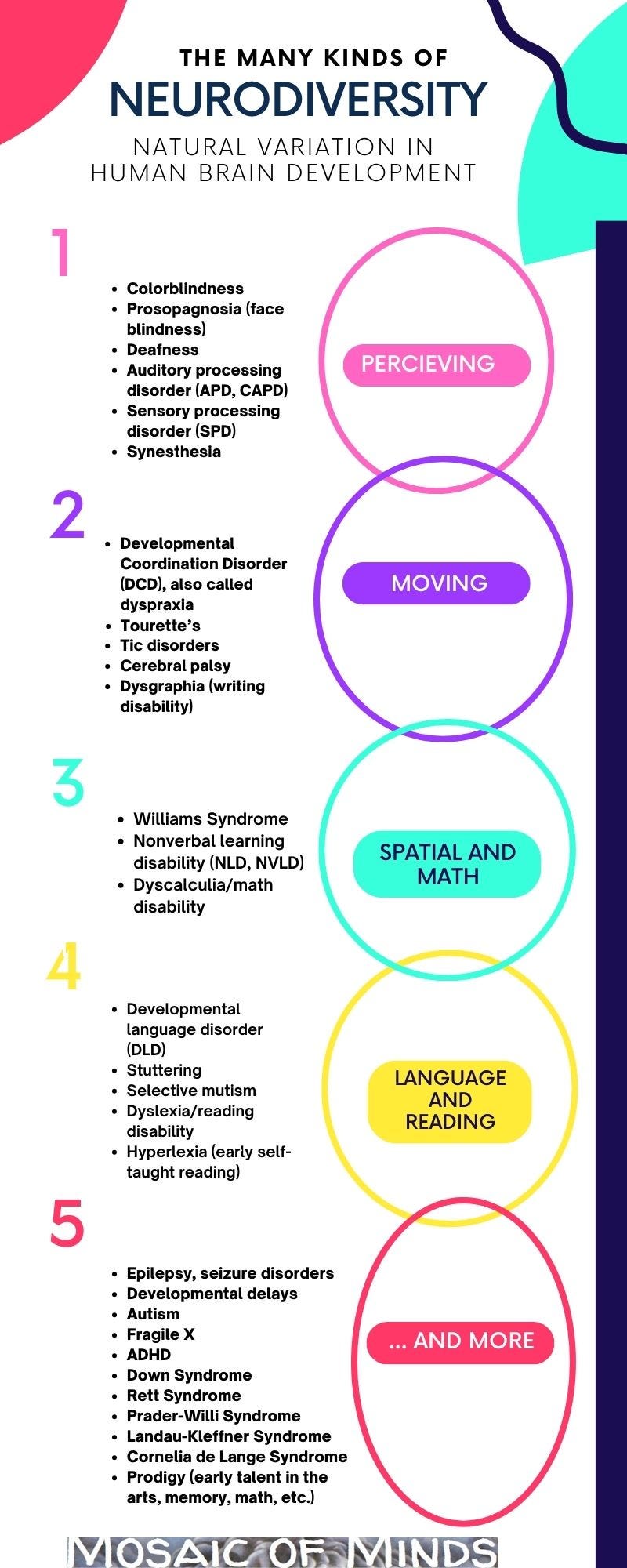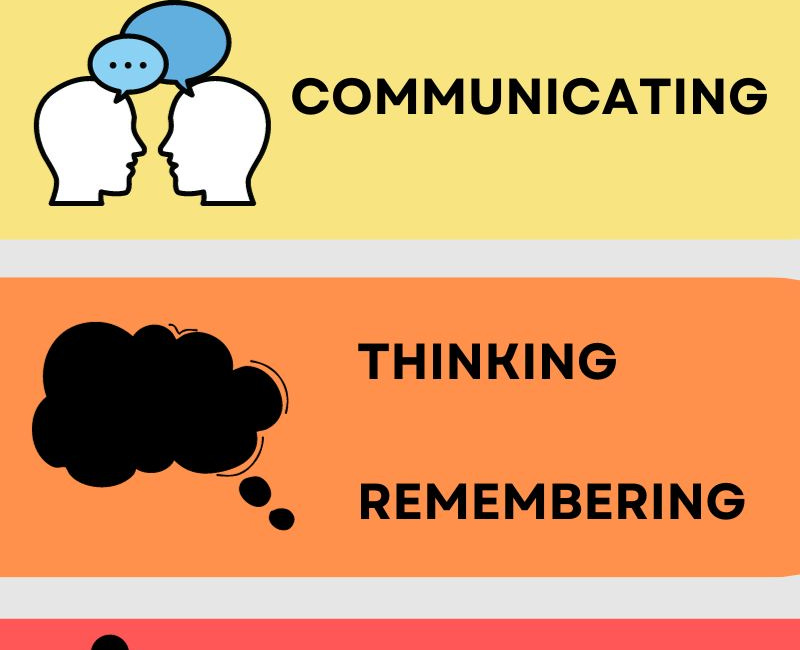When people think about neurodivergence (natural variation in human brain development), they often mean autism, ADHD, or dyslexia. These developmental and learning disabilities are common, have a strong presence in the media, or both. However, there are many ways that human brains can develop differently.
Developmental conditions: the way and rate at which a person develops
Learning disabilities (in the American sense): difficulty with specific academic areas, not due to low IQ
Specific genetic mutations (eg, the extra copy of chromosome 21 that causes Down Syndrome)
A predisposition toward mental illnesses or personality disorders
These variations can have negative effects overall (as in many genetic disorders), or offer clear advantages (such as savant syndrome). Yes, a beneficial variation is a kind of neurodivergence — a difference from the “norm.” “Neurodivergence” is a difference from the norm, not a synonym for “disability.”
Neurodivergence can mean differences in…
Overall brain health and functioning (eg, epilepsy)
Perception (eg, colorblindness)
Movement (eg, cerebral palsy)
Executive functioning and emotion regulation (eg, personality disorders)
Language and reading skills (eg, developmental language disorder)
Spatial and math skills (eg, Williams Syndrome)
Self-care and life skills (eg, developmental delays)
In short, human beings are…neurodiverse!
Below, you’ll find 2 infographics showing the broad range of human brain differences. Share them with your favorite teachers, doctors, neuroscience fans, family, friends, etc.


This neurodiversity probably benefits humans as a species. The more natural variation within a species, the more likely it is that some individuals will be well-suited to survive change in their environments.
Are these lists missing any kind of neurodivergence? Do you have questions or suggestions? Comment and be heard!
Are you curious about the disabilities mentioned here? If so, you might like:
A New Post Series Begins: What is a Disability?
You may have noticed that several big questions run through the Mosaic of Minds blog. All these questions have to do with the incredible diversity of human minds, and the neuroscience behind how they develop.
Disabilities are Created by Culture and Technology
Imagine a person with a reading disability who reads slowly and effortfully. Text surrounds them constantly, demanding to be read: news articles, emails, work documents, tax forms, user’s manuals, street signs, and menus.
The Curb Cut Effect: When Making Things Accessible to People With Disabilities Helps Everyone
[This is a shorter, more up-to-date rewrite of a post that appeared on the previous iteration of this blog on Medium].










Great list. A few more that come to mind are schizophrenia and fetal alcohol syndrome. I'm not sure if there is a specific name for this, but there are also those who are born to addicted to whatever substance their parent is using (such as heroin), with the potential for long-lasting effects (basically, the long-term effects of neonatal abstinence syndrome). I suppose a TBI might be another one.
Thanks for the suggestions! Fetal alcohol syndrome and neonatal abstinence syndrome definitely belong on the list!
I wasn't sure how to think about schizophrenia. On the one hand, there's a genetic predisposition for it. On the other hand, it doesn't fully emerge until adolescence or early adulthood.
So many acquired conditions, like TBI, strokes, or dementia, profoundly change people's brain and behavior and put them in the same situation as folks who were born with disabilities. However, it's fundamentally different to experience a disability as a disruption to who you are, versus as something you've always been. I've met elderly folks in nursing homes who had been brilliant, top in their fields, grieving and embarrassed that they now had difficulty doing basic things. For them, cognitive difficulties were a tragic loss. Whereas, with autism, any disabilities are a lifelong part of who they are and just feel "normal".
It's caused a lot of damage when neurotypical folks assume those born with a disability have tragic or pitiful lives. Deaf folks don't sit around wishing they could hear music at inaudible frequencies; they make their own. Autistic folks naturally stim or think in black and white or have intense interests, the way other folks walk and talk. To stop showing these traits, they must painfully self-censor or twist into exhausting shapes...which can lead to burnout.
Autistic people (probably Kassiane Sibley) coined the term "neurodivergence" to explain lifelong conditions like autism as natural variation, which exists in every species. And as with other animal species, whether a trait is "good" or "bad" depends on the environment. I think this history is part of the meaning of "neurodivergence".
Shall I delve into the many ways people can acquire brain differences, next?